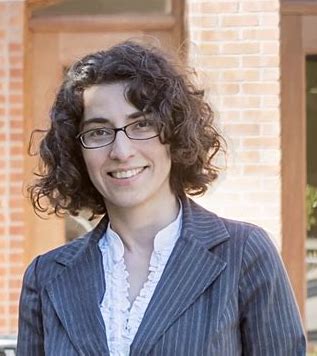 Diversity and inclusion was a prominent theme across campus this year. Questions about what this theme means and how it is enacted at UF were at the heart of student protests and activism, they were a focus in the substantial faculty hiring initiative across campus, and they were integral to the search for UF’s inaugural Chief Diversity Officer (CDO) this year. In this context, it was particularly important that this year’s National Women’s Studies Association Chairs and Directors meeting engaged participants in a critical analysis of current diversity and inclusion discourses and our field’s responsibility to transform these discourses and practices through our teaching, research, and service.
Diversity and inclusion was a prominent theme across campus this year. Questions about what this theme means and how it is enacted at UF were at the heart of student protests and activism, they were a focus in the substantial faculty hiring initiative across campus, and they were integral to the search for UF’s inaugural Chief Diversity Officer (CDO) this year. In this context, it was particularly important that this year’s National Women’s Studies Association Chairs and Directors meeting engaged participants in a critical analysis of current diversity and inclusion discourses and our field’s responsibility to transform these discourses and practices through our teaching, research, and service.
“I believe that on each of these dimensions, such a focus moves us from simply getting different people to the table (diversity/ inclusion) to striving for fair and ethical systems that promote care, foster trust and help more (all) people thrive (equity/justice).”
-Dr. Bonnie Moradi
Some of the key points that I took away from attending this conference were that diversity and inclusion efforts fall short if they reduce this issue simply to celebrating group differences or to increasing numbers of people placed in various categories, without naming race, gender, sexualities, and other SYSTEMIC POWER INEQUALITIES as the fundamental structures that require critical analysis and transformation. The latter focus calls for centering a mission of equity and justice. How might a focus on establishing systems, procedures, and practices that foster equity and justice shape our general education curriculum? our student recruitment and advising efforts? our hiring and retention of faculty? our valuing of faculty research, teaching, and service? our support and opportunities for staff? our commitment to experiential learning, internships, and study abroad? What problems and solutions begin to emerge when we center equity and justice as institutional goals? I believe that on each of these dimensions, such a focus moves us from simply getting different people to the table (diversity/ inclusion) to striving for fair and ethical systems that promote care, foster trust, and help more (all) people thrive (equity/justice). Here, I borrow Dafina Lazarus Stewart’s (2017) questions drawing this distinction:
- Diversity asks, “Who’s in the room?” Equity responds: “Who is trying to get in the room but can’t? Whose presence in the room is under constant threat of erasure?”
- Diversity asks, “How many more of [pick any minoritized identity] group do we have this year than last?” Equity responds, “What conditions have we created that maintain certain groups as the perpetual majority here?”
- Inclusion asks, “Is this environment safe for everyone to feel like they belong?” Justice challenges, “Whose safety is being sacrificed and minimized to allow others to be comfortable maintaining dehumanizing views?”
- Inclusion celebrates awards for initiatives and credits itselffor having a diverse candidate pool. Justice celebrates getting rid of practices and policies that were having disparate impacts on minoritized groups.
I think of our Center accomplishments this year with this frame in mind. We are delighted to have hired Dr. Jillian Hernandez (joins us in the fall) whose research and teaching engages art as social justice activism, centering the experiences of women of color. Dr. Hernandez adds to our units’ strengths on the intersections of class, gender, race, sexualities and on feminist praxis. Another example of striving for equity and justice through our work is the continuing growth of our experiential learning offerings through internship, practicum, and student research. Last year, we placed 32 students in research experiences and 116 of our majors, minors, and graduate students in internship and practicum experiences focusing on justice issues such as violence against women, campus climate, and health equity. In addition, Center faculty organized or participated in events focused on social justice activism through art, activism and health in intersex communities, inequities in health care access and outcomes, reproductive justice, take back the night, and more. Many of our new courses for next year also center equity and justice, including Sexual Ethics, Social Justice Praxis, LGBTQ Movements and Activisms, and Women and Entrepreneurship, all offered in fall 2018. Last but not least, we are particularly proud of our students (see pages 4-6) who presented their work and won major awards for their equity and justice-focused research and community engagement. We thank you all for your continuing engagement with the Center and our work toward greater equity and justice!
Reference
Lazarus Stewart, D. (March 30, 2017). Language of appeasement. Inside Higher Ed. Retrieved from https:// www.insidehighered.com/ views/2017/03/30/colleges- need-language-shift-not-one- you-think-essay.